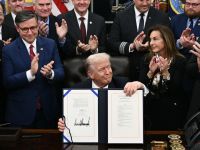The political confusion in the United States proves that Americans are just as fallible as anybody else and can no longer afford to play global preacher, experts in India, the world's largest democracy, said Saturday.
The inconclusive race for the US presidency between George W. Bush and Al Gore provided rich fodder for gleeful Indians, headed by the country's Chief Election Commissioner M.S. Gill.
Gill's immediate reaction was that the culprits were mainly big television networks who had jumped the gun in trying to be first with the news.
"I think part of the blame lies with the competitive press of America with each television channel wanting to be the first to break the news", Gill said.
He said he was "surprised" by the situation in Florida.
"How can results be given out when there is a narrow margin and there are thousands of postal ballots still to be counted?" he said.
He later said the US had lost the moral right to send political observers to other countries.
"They send US observers all over the world to watch and comment on others' elections; it's time they invited the international observers to come and do the same for their elections."
Jay Dubashi, an ideologue of Prime Minister Atal Behari Vajpayee's Hindu nationalist BJP party, said the debacle showed that Americans could no longer adopt a high moral tone while addressing other countries.
"All Americans always behave in a very superior manner in all things -- political, defense, economic and personal issues.
"For the first time now they have committed the same error that could have taken place elsewhere. The message we all have for Washington is that you are no better than everybody else."
Dubashi, however, conceded that the American electoral system was better than the Indian model.
"They are a much older democracy -- more than 200 years old and have been holding elections for a much longer time, whereas we have been around as a democracy for merely 50 years.
"They are much more advanced both technically and otherwise. They have more resources like money -- they spent three billion dollars on the elections. I don't think we spend even 10 percent of that.
"The US elections are well organized. Things have fallen awry this time because Gore, despite his 25 years in politics and his stint as vice-president, has failed to win the confidence of his countrymen in his leadership."
The Economic Times daily Saturday said the American electoral system was complicated and tangled in a long article titled "America has been logged on to chaos. president for long."
It said Bush "while waiting for the outcome of the US election can take comfort from one fact: the only other son of a US president also to be elected president also went through the same thing.
"In 1824, when John Quincy Adams, the son of the second president John Adams, was elected president, it was only after losing the popular vote.
"Al Gore can take comfort from the fact that four years later Andrew Jackson, the loser in that case (though the popular vote winner) was swept to power with a decisive win."
Veteran Indian author and journalist Khushwant Singh said despite the confusion, the American electoral system was "fairer and more reflective of the ground reality" than in India.
He said Chief Election Commissioner Gill "was crowing with no reason to crow," adding that he personally had badly misjudged the trends.
"I initially expected Gore to have an easy victory, then I thought it would be Bush, now both seem to have got it," he said, chuckling -- NEW DELHI (AFP)
© 2000 Al Bawaba (www.albawaba.com)







